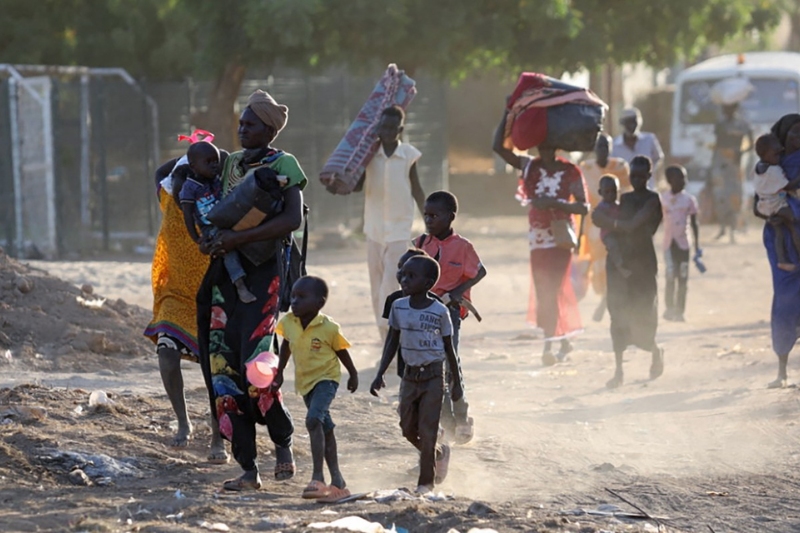UN humanitarians cautioned on Friday, June 7th, that Sudanese people are suffering increasing violence and a near famine. This follows a purported raid by the Rapid Support Forces (RSF) on the community of Wad Al-Noura in Aj Jazirah state, south of Khartoum, claimed to have left over 100 people dead, including at least 35 children.
The Chief of Mission for the UN Migration Agency (IOM), Mohamed Refaat, underlined during a briefing from Port Sudan “truly horrible reports of violent attacks and casualties.” UN Secretary-General António Guterres and UNICEF head Catherine Russell have denounced this attack.
Around 800,000 people still live in danger in another war flashpoint, North Darfur’s capital, El Fasher, as violence between the Sudanese Armed Forces (SAF) and the RSF escalates. Refaat said the site is “inaccessible” to the UN and urged all sides to let unhindered supplies flow. He underlined that the local fuel and water rates have “skyrocketed,” rendering basics unaffordable.
Keep Reading
Internal displacement in Sudan has almost reached 10 million people since the crisis started on April 15, 2023; a food shortage is a major cause motivating individuals to escape. According to Refaat, 3.6 million children are severely malnourished, and 18 million adults in Sudan are desperately hungry.
Apart from the internally displaced, more than two million people have left Sudan’s boundaries for neighboring nations, mostly in Chad, South Sudan, and Egypt. Many times, these people arrive in very traumatized and fragile states. Refaat also cautioned of a three-fold rise in Sudanese citizens choosing risky migration paths via Libya, Tunisia, and finally Europe.
Over 600,000 Sudanese have come to Chad since the crisis started, according to Alpha Seydi Ba, the regional spokeswoman for the UN Refugee Agency (UNHCR) for West and Central Africa. Many are children and women who have experienced significant trauma. Before this crisis, Chad was already housing more than 400,000 Sudanese refugees. Funding shortages have made the response to their basic requirements progressively difficult.
Though it is just nine percent financed, the UNHCR’s response plan for five bordering countries hosting Sudanese refugees calls for $1.4 billion. The humanitarian response in Sudan is only 16 percent supported.
Furthermore, the UN health organization WHO is concerned about Sudan’s failing healthcare system, noting that approximately 65% of the population lacks access to healthcare, as stated by WHO spokesman Christian Lindmeier. The health system, primarily reliant on Khartoum facilities, has suffered significant damage; only approximately 25% of necessary medical supplies remain accessible, and only a minimal level of functionality exists in remote areas.
Declining vaccination rates have caused the WHO to register a record number of measles cases in 2023; 2024 should be worse. Furthermore, there are increasing incidences of cholera, malaria, and dengue; care for chronic ailments such as diabetes, hypertension, heart disease, and renal failure is sorely lacking.

